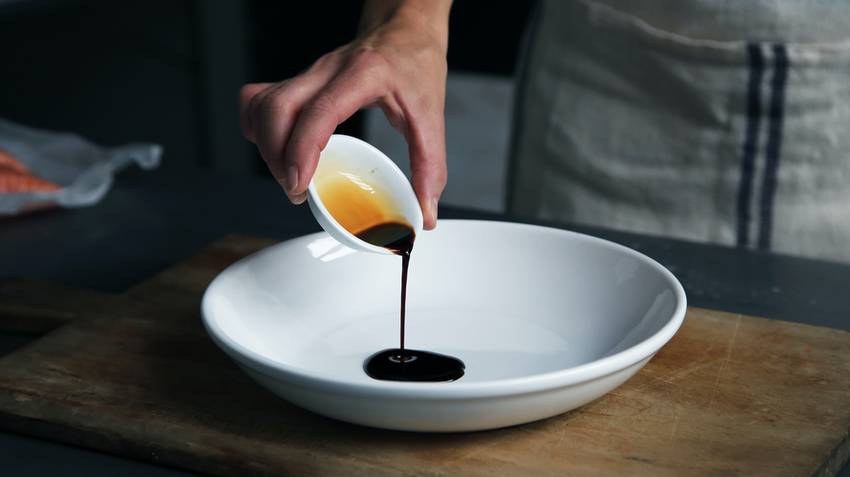As parents, we’ve all been there. Faced with a fresh diaper to change and that unmistakable smell of vinegar hitting us like a wall. We may at first be taken aback, but the reality is that this common scenario is completely normal when it comes to baby diapers.
In fact, if you ask any experienced parent, they’ll likely say their little one’s poops tend to smell like vinegar too! It’s okay – you’re not alone.
Why does my baby’s poop smells like vinegar?
If the scent of a baby’s poop is similar to vinegar, it might be an indication that food and nutrients weren’t absorbed in their digestive system. Unabsorbed food can ferment in the digestive tract, leading to a sour odor emanating from the resulting poop.
In this blog post, we will discuss the most common causes of this smell and what you can do about it. We will also provide some tips for keeping your baby’s diaper area clean and healthy.
What Is Normal Infant Poop?
Normally, a full-term baby’s first stool is produced 48 hours after delivery. The poop is greenish-blackish in color and contains what the infant ate before birth. It will also contain amniotic fluid and bile, as well as fluids from the baby’s intestinal glands. Meconium (earliest stool) is odorless and normally sterile, so it should depart your infant’s system after a few days.

When you begin feeding, germs enter the baby’s stomach, marking the start of feces development. Bacteria are introduced into a breastfed infant’s gut, resulting in a watery, mustard-colored stool that appears to have tiny seeds inside and a burnt hair-like smell.
A pale yellow, tan, or green feces is typical in formula-fed infants. If your baby’s poop is brownish, there’s no cause for worry.
When a baby is breastfeeding, his feces are odorless and have a sweet fragrance. Formula-fed babies’ poop might have an unpleasant odor, but it isn’t overwhelming. The true diaper bombs are detonated when the infant begins feeding on solid foods, and the stool becomes firmer.
Why Does Your Baby’s Poop Smells Like Vinegar?
Lactose Intolerance
Lactose intolerance is one of the most common reasons why breastfed babies’ poop has a sour odor. Your baby’s stomach can be sensitive to milk or other dairy products. A dairy product you ate before nursing may also irritate your infant’s tummy. Bloating, gas, and diarrhea are other signs of lactose intolerance.
Bad Gut Flora
Your baby’s “good” bacteria is disrupted during birth, allowing harmful gut flora to thrive from the start. The bacteria in your baby’s tummy can also be influenced by diet, activity, and the environment, generating that smelly poop.
Malabsorption
The nutrients in your baby’s meals are absorbed through the digestive tract. If the absorption process fails, however, your infant’s feces might have a sour odor as a result of viral, parasitic, bacterial, or physiological factors. Viruses, parasitism infections, and certain illnesses are some of the most prevalent causes of malabsorption.
Food Sensitivity
It’s exciting to try new foods with your baby. However, it introduces a slew of problems. As your kid learns about new textures and tastes, food allergies and intolerances develop. For example, allergy to honey or maple syrup. Baby poop will have a vinegar-like smell if he or she is sensitive to certain foods.

Rotavirus
Rotavirus is a contagious disease. The virus has been linked to gastric inflammation, particularly in the baby’s intestines. Symptoms of the infection include frequent diarrhea, vomiting, fever, discomfort, and thirst. The stool will have an acidic odor similar to that of vinegar.
Crohn’s Disease
A painful digestive tract is one consequence of inflammatory bowel disease. Foul-smelling and bloody diarrhea, fever, tiredness, stomach cramps, mouth sores, and an inability to eat are among the symptoms.
Cystic Fibrosis
Cystic fibrosis is an inherited disease that causes mucus to build up in the lungs and digestive system. Cystic fibrosis is usually detected at birth, so you’ll almost certainly find out if your child has it right away.
Teething
Because there is no scientific research to support this, some parents have noticed that their infants’ poop has a vinegar-like fragrance during teething.
Other Symptoms You Should Look Out For
Apart from feces that have a vinegar odor, other symptoms can indicate a more severe problem in your baby’s gut health. These are some of them:
- Vomiting, especially if accompanied by nausea.
- Pain in the stomach.
- Thirst (pain in the abdomen) and Dehydration.
- Shortness of breath.
- Frequent watery feces, more than 6 times in 24 hours.
- Blood, white, red, or black feces.
How Can You Treat This Condition?
If your baby’s poop smells like vinegar and he or she is otherwise healthy, there’s no need to worry. There are a few ways to treat this condition.
- Electrolyte Solution – Giving an electrolyte solution under your doctor’s supervision may help remove any foreign objects. Never give water to a baby, and before doing so, call your doctor.
- Change the formula as per your doctor if baby feces have a vinegar odor and are caused by formula sensitivity.
- The breastfeeding challenge diet – Remove any suspicious foods from your diet and gradually reintroduce them one by one to pinpoint the offender.
- Give antibiotics when needed to cure gastrointestinal infections. Supportive therapy includes the BRAT diet (Bananas, Rice, Applesauce, Toast), electrolyte solutions, and rest.
- Supplementation for Malabsorption – If your baby has malabsorption syndrome, doctors can provide supplements to assist with it. Digestive enzyme tablets, specific milk, and vitamin pills may all assist with and alleviate the problem.

Frequently Asked Questions
Q1: When does the baby start to poop?
Ans: At 3 to 5 days old, the first transitional stools are frequently softer and more liquid. The transition from the sticky greenish-blackish tar stool color to the normal green-yellow or brown might indicate that your kid isn’t feeding enough, as well as other symptoms.
Q2: How often do breastfeed babies poop?
Ans: Your baby should have at least three bowel movements a day for the first six weeks. Some babies poop up to 12 times a day. After a few weeks, the number of daily bowel motions will fall to 3-4 days.
Q3: What causes a smelly gas in newborns and when does it start?
Ans: The most common causes of smelly gas in newborns are feeding too quickly, swallowing too much air or bath water, and sensitivity to a particular formula. Breastfed infants don’t have particularly bad feces, while bottle-fed babies have a moderately stinky odor. However, it becomes even more smelly when they start eating solid food.
Q4: How to identify that baby is lactose intolerant?
Ans: It’s possible that a baby with tummy bloating, crying while passing gas, stool, or red bottoms with skin worn away in places is lactose intolerant. Another indication of lactose intolerance is a failure to grow weight.
Q5: Does baby’s poop smell change when teething?
Ans: The cause of smelly stool or watery stools isn’t teething. The majority of teething begins between the ages of four and eight months when the baby’s body is going through significant changes.
Q6: Why does my infant’s poop smell like acid or sulfur?
Ans: Baby’s poop smells are usually a result of how long the feces were in their stomachs the longer it remains in germs, the more potent it becomes. An allergy or sensitivity can cause some babies to have extremely sour or smelly poop.
Q7: When should I be concerned about my 6 months baby’s stools smells like vinegar?
Ans: If your baby’s feces are stinky, however, it might indicate that they’re allergic to a food or other substance. If the sour-smelling poop persists for multiple days, you should visit your child’s doctor and request an allergy test.
Conclusion
Normally baby poop doesn’t smell like vinegar. If your baby’s poop smells sour, there might be an underlying medical condition. In some cases, changing your diet or formula can help. You can try giving an electrolyte solution, changing the formula, or supplementing for malabsorption.
If the strong aroma persists for multiple days, you should visit your child’s doctor and request an allergy test. Take precautions and enjoy your time with your little one! Don’t forget to try the treatments mentioned above to save your baby from unnecessary gastric problems.







